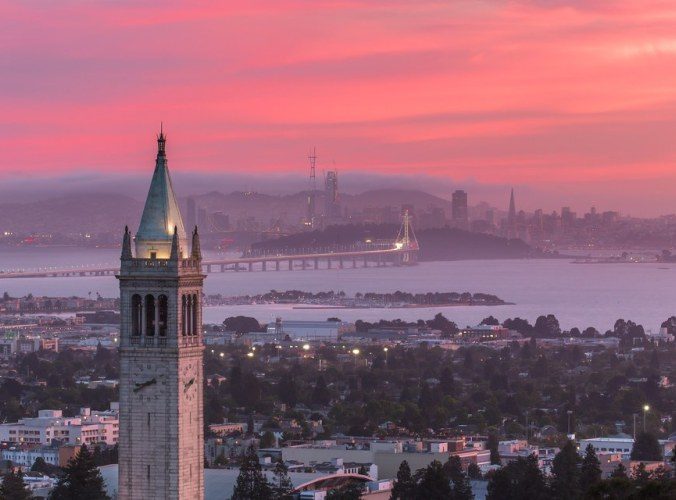Note: GJEL Accident Attorneys regularly sponsors coverage on Streetsblog San Francisco and Streetsblog California. Unless noted in the story, GJEL Accident Attorneys is not consulted for the content or editorial direction of the sponsored content.
UC Berkeley (Cal), the #1 public university in the world, has long offered both top academics and a path for students of all backgrounds to achieve professional success. Today, that legacy is at risk because a few anti-housing neighbors abused California’s environmental protection law to challenge new student housing–and in February a judge bought their nonsensical, prejudiced arguments and stopped construction of a housing project.
Blocking housing at People’s Park will limit enrollment and, in turn, harm the research, innovation, and legendary social justice activism cultivated by the university. Additionally, because sprawl is the only alternative to housing located within walking distance of the campus, this ruling will also harm the environment.
We must fix our environmental review laws to actually protect the environment, not the status quo. Annually, Berkeley students and residents face poor air quality from climate change-induced wildfires. Luckily, studies show that building more housing near campus combats climate change by reducing car dependence.
The ruling has negative implications not just for the environment and the school, but for the city, state, country, and world. We must prioritize the potential impact of students, and infill housing’s environmental benefits, over rich residents who wish to increase their property values under the guise of preserving neighborhood green spaces and wanting peace and quiet. Similarly, Cal’s legacy of churning out graduates who’ll change the world must be prioritized over People’s Park’s legacy of free speech and civil rights: there are other ways to honor the park’s history without harming the environment.
Furthermore, the arguments put forward by residents set a terrible precedent. They claim that students are noisier than other groups, and thus the university is obligated to study and mitigate that noise as an environmental issue. This raises more questions: if student parties are an environmental issue, what else might be? And what other groups might be targeted next?
Cal was founded in 1868 as California’s first land-grant university and the UC system’s first campus, a decade before the city of Berkeley was incorporated. Residents have always known that they would share their city with students. Today the campus, which is open to the public for all to enjoy, remains a focal point of the city and a point of pride for many Berkeley residents regardless of whether they attended Cal.
Growing up, I would visit the Cal campus for home basketball games with relatives who attended the school. Their Berkeley degrees opened doors for them and I credit some of my privilege to the education afforded to my family. More students should have that same opportunity.
Though times have changed, the university and city of Berkeley have not. With over 45,000 students yet only 9,875 beds for them, Cal houses a mere 23 percent of its students on campus, by far the lowest percentage in the 10-campus UC system. Over 10 percent of Berkeley students are homeless, and many more suffer through long commutes to save money. These numbers will only increase: through 2036-37, Cal estimates that they’ll add about 13,900 students, faculty, and staff who’ll live in campus housing, and about 8,200 more without housing, offering a stark example of the housing shortage, homelessness crisis, and instability facing California’s students.
This ruling’s weaponization of CEQA will only increase the hardships facing Cal students. Countless high schoolers work tirelessly to get in, and once there, it’s not exactly a cakewalk–besides challenging coursework, they must deal with the dire effects of the housing crisis. We owe it to the students to make it easier for them to get the education they rightfully earned: they shouldn’t have to sleep on couches, dwell in unsavory living conditions, or commute multiple hours to do so.
High rents from lack of housing harm those who need the most assistance: first-generation, low-income, and people of color. UC Berkeley has influenced innumerable lives–we should make it easier, not harder, for them to continue doing so.
Governor Newsom responded to this fluke of a ruling saying “…California cannot afford to be held hostage by NIMBYs who weaponize CEQA to block student and affordable housing…The law needs to change.”
A few wealthy Berkeley homeowners should not be able to block desperately needed student housing for years and even decades.
CEQA needs to change and we are committed to working with the legislature so California can build more housing. pic.twitter.com/3NC0SsLnMT
— Office of the Governor of California (@CAgovernor) February 25, 2023
Already, multiple legislators are on the case: Folsom Assembly Member Josh Hoover’s latest #AB1700 bill specifies that increased population and noise from a housing project can’t count as an environmental impact under CEQA. Senator Scott Wiener promises to introduce legislation stopping CEQA from evaluating the type of people who will live in new housing.
Though bills like AB 1633 are an important first step, we need more comprehensive reform and we need it now. We call on the governor and legislature to reform CEQA. Berkeley is a wonderful place to live and the university has helped make it so. If you care about equality, you should want more on-campus housing so more people can access the opportunities and resources rendered by UC Berkeley.
***
Lizzie Siegle is active with SF YIMBY and Urban Environmentalists.






